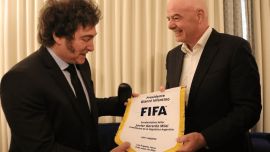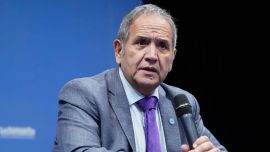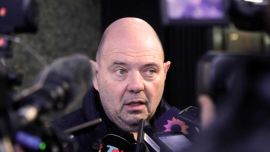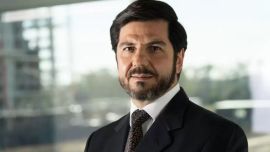In terms of ideologies, there is a marked difference between a populist leader with a statist vocation and a radical liberal, inspired by the literature of the Austrian school of economics. But alongside these and other notable differences, which obviously relate both to the individual characters and the times in question, some suggestive parallels can be drawn between the phenomena embodied in the figures of Juan Domingo Perón and Javier Gerardo Milei.
Both the smiling colonel who emerged into public life in the 1940s and the bushy-haired economist are outsiders from the traditional political elite. Indeed, beyond his free-market preaching, Milei is garnering opposition that recalls elements of the political-cultural ethos that surrounded the liberal-left alliance of the Unión Democrática created to oppose Perón in the 1946 general election. After some communicators began making references to the old theory of the heteronomy of the masses, the icing on the cake came from intellectuals who published a controversial petition warning against the democratic danger of Milei winning the elections.
Another parallel could be sought in the role that sentiment plays in Milei's political mise-en-scène and which Perón highlighted in the very foundations of his doctrinaire invention. When former Christian Democrat Juan Gabriel Labaké visited Perón during his exile in Madrid, he exultantly told him that he had read all his books. The old caudillo asked Labaké if he felt himself to be a Peronist, and when he got an affirmative answer he gave him a recommendation loaded with Borgean irony: "Then you should have spared yourself the books." As writer and politician Jorge Asís pointed out, in the empathetic relationship with his electoral base, it is perhaps more important to pay attention to what Milei generates than to what he says.
Thus, between their outsider status and the emotional dimension of their charisma, there is a kinship in emerging figures who present themselves as both righteous and transgressive.
The red thread for the historical analogy can be found in a previous pro-market government that the libertarian claims was the best in recent Argentine history and was presided over precisely by a faithful disciple of General Perón. Many have considered Carlos Menem a traitor to Justicialismo preciesly because of Argentina’s economic policy of the 1990s. However, in political terms, Menem's versatility could be interpreted as a typically Peronist adaptation to changing conditions, especially at the international level. The evolutionist conception of history with which Perón elaborated his political hypotheses, according to which the subject is overdetermined by epochal tendencies that transcend his mere will, enabled the historical potential of inaugurating a liberal form of Peronism.
It remains to be seen whether Milei, for his part, will be able to reconcile liberalism with Peronism. There are already several indications that behind the dogmatist inspired by Mises, Hayek and Friedman lies a politician who is more pragmatic than we might suspect. If so, the libertarian could also resemble Perón in the aspect pointed out by Ernesto Sabato in El otro rostro del peronismo (“The Other Face of Peronism”). Sabato, the author of the first prologue to the Nunca Más report, pointed out that a fundamental difference between Perón and Hitler was that while the European used to tell the truth, the Argentine almost always lied. If Milei is the next president, let us hope so.
* PhD in History (University of Buenos Aires).
related news
by Juan Pedro Denaday*






















Comments